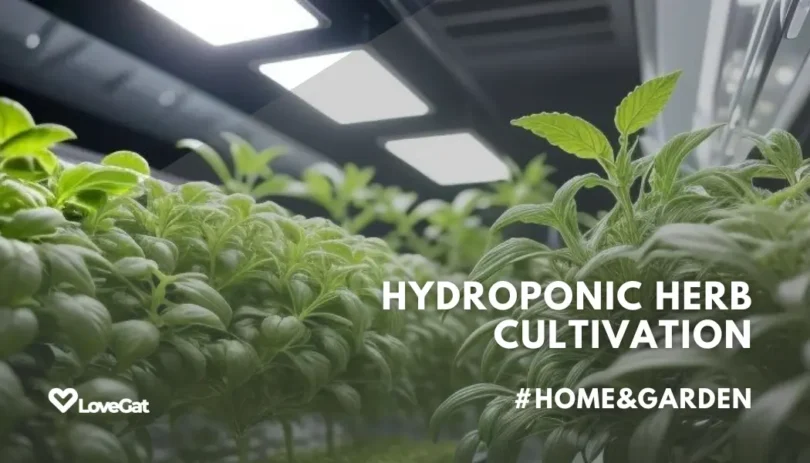Exploring the Feasibility and Requirements of Growing Herbs Using Hydroponics!
Hydroponic gardening has gained popularity in recent years as an innovative and efficient method of growing plants without soil. While commonly associated with growing vegetables, hydroponics also offers promising opportunities for cultivating herbs. In this article, we’ll delve into the feasibility and requirements of growing herbs using hydroponic systems, exploring the benefits, challenges, and essential considerations for successful herb cultivation in a soilless environment.
Understanding Hydroponic Herb Cultivation
Hydroponics is a farming technique where plants are cultivated in nutrient-rich water solutions rather than conventional soil-based mediums. This approach allows for precise control over environmental factors such as nutrient levels, pH balance, and water availability, resulting in accelerated plant growth and higher yields. When applied to herb cultivation, hydroponics offers several advantages, including faster growth rates, reduced water usage, and minimal soil-borne pests and diseases.
Key Considerations for Hydroponic Herb Gardening
Before embarking on hydroponic herb cultivation, it’s essential to consider several key factors to ensure success:
-
Hydroponic System Selection: There are various types of hydroponic systems available, each with its own advantages and requirements. Common systems for herb cultivation include deep water culture (DWC), nutrient film technique (NFT), and aeroponics. Choose a system that aligns with your space, budget, and experience level.
-
Lighting Requirements: Adequate lighting is crucial for healthy herb growth in hydroponic setups. Since herbs typically require full sunlight for optimal growth, supplemental grow lights may be necessary, especially in indoor environments. LED grow lights are a popular choice for providing the spectrum and intensity of light needed for robust herb growth.
-
Nutrient Solutions: Hydroponic herbs rely on nutrient-rich solutions to support their growth and development. Select a balanced hydroponic nutrient solution specifically formulated for herbs, and monitor pH levels regularly to ensure optimal nutrient uptake and plant health.
-
Temperature and Humidity Control: Maintaining stable temperature and humidity levels is essential for hydroponic herb cultivation. Most herbs thrive in temperatures between 60°F and 75°F and require moderate humidity levels to prevent stress and disease. Use temperature and humidity controllers to regulate environmental conditions within the hydroponic growing area.
Advantages of Hydroponic Herb Cultivation
Year-Round Growing Season
Hydroponic systems allow for year-round herb cultivation, regardless of seasonal variations or climate conditions. By controlling environmental factors such as temperature, light, and humidity, hydroponic gardeners can create optimal growing conditions for herbs, ensuring a continuous supply of fresh, flavorful greens throughout the year.
Space Efficiency
Hydroponic herb gardens are highly space-efficient, making them ideal for urban dwellers or those with limited outdoor garden space. Vertical hydroponic systems, in particular, maximize vertical space by stacking multiple growing layers, allowing for high-density herb production in compact areas such as balconies, patios, or indoor grow rooms.
Water Conservation
Hydroponic herb cultivation is inherently water-efficient, as it eliminates the need for soil and minimizes water waste associated with traditional irrigation methods. By recirculating nutrient solutions within the hydroponic system, water usage is significantly reduced, making hydroponics a sustainable option for herb growers concerned about water conservation.
Challenges and Considerations
Initial Investment
While hydroponic herb cultivation offers long-term benefits, it typically requires a higher initial investment compared to traditional gardening methods. Costs associated with purchasing hydroponic equipment, lighting systems, and nutrient solutions can add up quickly, especially for large-scale operations. However, many hobbyists and enthusiasts find the upfront investment worthwhile due to the potential for increased yields and year-round production.
Learning Curve
Hydroponic gardening requires a basic understanding of plant physiology, nutrient management, and hydroponic system operation. Beginners may encounter a learning curve when setting up and maintaining their hydroponic herb gardens, particularly regarding pH management, nutrient dosing, and troubleshooting common issues such as nutrient deficiencies or root rot. However, with patience, research, and hands-on experience, hydroponic gardening can be mastered over time, leading to rewarding and successful herb cultivation.
Exploring the feasibility and requirements of growing herbs using hydroponics opens up exciting possibilities for herb enthusiasts and gardeners alike. With careful planning, proper equipment, and attention to detail, hydroponic herb cultivation offers numerous advantages, including year-round production, space efficiency, and water conservation. By embracing the principles of hydroponic gardening and harnessing the power of modern technology, herb growers can enjoy a bountiful harvest of fresh, flavorful herbs while minimizing environmental impact and maximizing efficiency.
You Might Also Like
- How I used AI to create a living data visualization for our home
- 20 Cool Home Decor And Designs For Any Style
- Planning a garden? Here’s a step-by-step guide to start off on the right foot
Social Media Communities
Share your digital nomad experiences and connect with fellow Us:
- Instagram: @Lovegatofficial
- Facebook: @LoveGat
Your journey doesn’t end here. Continue to explore and share our Decor & Home Posts.







